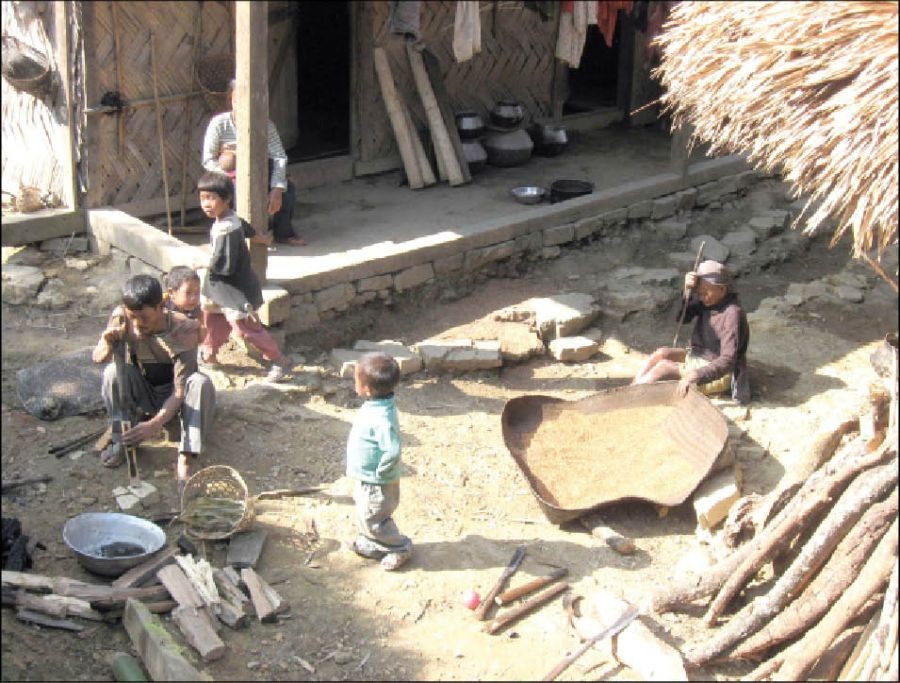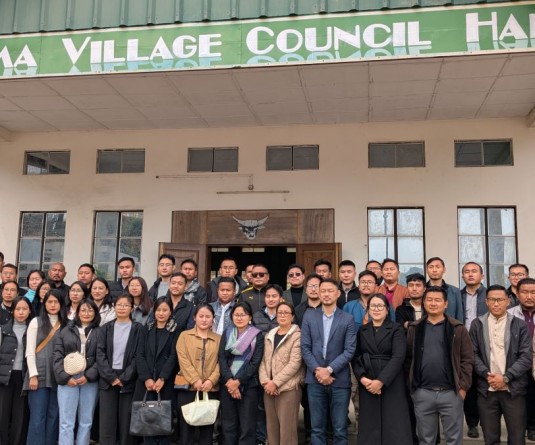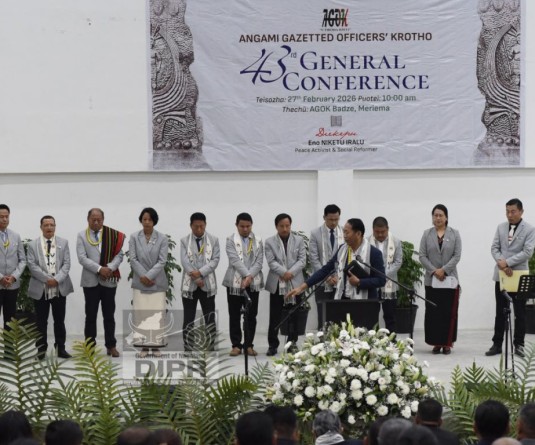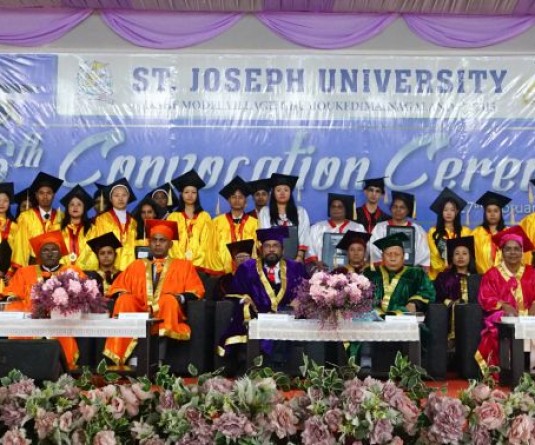Children in Chaoha village in Mon district play outside their house as elders keep busy with their regular chores. Despite the right to free and compulsory education, many children from villages in Mon are deprived of this basic right as parents continue to use them for manual work. Child trafficking is also increasing in this part of the state. (Morung File Photo)

Morung Express News
Dimapur | June 7
PEOPLE IN THE villages of Mon district are finally waking up to the destruction of their children. Devoid of even their basic rights, most children in these parts of the state are living below the poverty line and are mostly illiterate or school dropouts.
After years of sending their children away to live with wealthy families on being promised education and care, these parents are shocked to learn that their children may well be working like slaves to their masters. And this reality has come to light with the efforts of a child rights campaign in Mon which is currently being organised and sponsored by World Vision of India in collaboration with the Community Education Centre Society (CEC) from Dimapur.
Enacting street plays depicting child labour, the team led by Subongnenba Longkumer, the Director of CEC, has so far covered six villages and reached out to more than a thousand children. The main focus of the campaign is to create awareness on child rights and teach parents the importance of education.
Speaking to The Morung Express over phone, Subongnenba expressed anguish over the plight and condition of children in the villages of Mon. He remarked, “Due to lack of proper guidance, love and care, these children are being exploited to the maximum.”
It is learnt that over 90% of children living in villages are deprived of basic education. Although many are enrolled in government schools, children hardly have time to study. Children, as young as five years, are seen carrying babies on their backs rather than attending school. Most of those who do go to school, work in fields and stone quarries after attending classes leaving them with no time for revision. The condition of girls is much worse than that of boys, it is learnt.
Subongnenba said that out of 100 houses in one village, the population of children below the age of sixteen is anywhere in between 400 to 500. Disturbed by the lack of birth control system, Subongnenba said that this trend will only make things worse for children. “Parents are sharing their responsibilities with their children and in the process hindering their right to education,” he added.
Human trafficking has become a very big issue in the district of Mon. The community is unable to keep track of the number of children going outside their villages to work as domestic workers. Most parents are ignorant about the plight of their children and fail to keep contact with them after they are taken away by pimps. Because the middlemen are generally known to parents, most take it for granted that their children are in safe hands. Over the past few years, many children trafficked from Mon have become petty criminals after running away from their employers’ homes.
The trafficking network has become so large it is difficult to comprehend. And because children cannot fight for their own rights, it is imperative for parents to open their eyes and the government to lend support in combating child trafficking. Subongnenba says that the child rights campaign will precisely address those issues. The campaign will culminate on June 12 coinciding with the International Child Labour Day.






